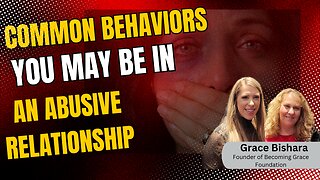Premium Only Content

What is Postpartum Depression: A Young Woman's Journey Through Postpartum Depression
Postpartum depression is a serious mental health condition that affects many women after giving birth. It is a type of depression that occurs in the first year following childbirth and can have a profound impact on a woman's physical and emotional well-being. While the condition is relatively common, it is often misunderstood and can be difficult for those who experience it to seek help.
The causes of postpartum depression are complex and can vary from woman to woman. Some common causes include hormonal changes, a lack of support, financial stress, and the pressure of being a new mother. Women who have a history of depression or anxiety, or who have experienced trauma, are also more likely to develop postpartum depression.
The symptoms of postpartum depression can be intense and disruptive. They may include feelings of sadness, anxiety, irritability, insomnia, fatigue, and a loss of interest in things that once brought joy. Some women may experience a persistent feeling of hopelessness, have trouble bonding with their baby, or feel overwhelmed and unable to care for their child.
Fortunately, postpartum depression is treatable and there are many options available for women who are struggling. Psychotherapy is one of the most effective treatments for postpartum depression and can help women learn to cope with the challenges of being a new mother. Cognitive-behavioral therapy (CBT) is a popular form of psychotherapy that teaches women how to change negative thought patterns and behaviors, and can help reduce feelings of sadness and anxiety.
Antidepressant medication is also a common treatment for postpartum depression. These medications can help balance the levels of chemicals in the brain and improve mood. Antidepressants are generally considered safe for women who are breastfeeding, but women should discuss the potential risks and benefits with their doctor.
Support groups can also be an effective treatment for postpartum depression. Joining a support group can provide women with a sense of community and help them feel less isolated and alone. Support groups can also help women learn from others who have gone through similar experiences and share tips for coping with postpartum depression.
In addition to professional treatment, there are also things that women can do on their own to help manage their postpartum depression. Self-care is essential, and women should make time for themselves to rest, exercise, and engage in activities that bring them joy. Women can also benefit from seeking support from friends, family, and loved ones.
In conclusion, postpartum depression is a serious condition that can have a profound impact on women and their families. However, with the right treatment and support, women can recover and go on to lead happy, healthy lives. If you or someone you know is struggling with postpartum depression, it is important to seek help
-
 1:49:14
1:49:14
2 MIKES LIVE
21 hours ago2 MIKES LIVE #160 We're Back! Deep Dive Monday!
127K26 -
 54:28
54:28
LFA TV
1 day agoTrump’s Triumphant Year | Trumpet Daily 12.30.24 7PM EST
104K19 -
 2:28:37
2:28:37
Quite Frankly
20 hours ago"2024 Review, Homunculus Flu, Old/New Year Predictions" 12/30/24
123K18 -
 14:04:17
14:04:17
RonjnJeremy
22 hours ago $10.06 earnedClassic Wow 20th Anniversary edition HC SF, Rogue..PT8 lvl 46+ Just need to stay alive...
135K7 -
 1:50:28
1:50:28
Jesús Enrique Rosas
19 hours agoEp. 51: Gates wants CENSORSHIP, Colbert MESSES UP, AOC meltdown, Hanks LEAVING and MOAR!
140K100 -
 1:45:47
1:45:47
The Quartering
21 hours agoHuge Censorship Law To Pass, Trump Endorses Johnson, TikTok is Saved? & Today's News!
161K99 -
 55:59
55:59
The Amber May Show
20 hours ago $2.05 earnedCommon Behaviors That May Indicate You Are In An Abusive Relationship| Grace Bishara
45.6K2 -
 1:54:42
1:54:42
MTNTOUGH Fitness Lab
16 hours agoThe MTNTOUGH 8 Week LIVE READY Challenge w/ Kyle Kamp | MTNPOD #97
35.4K1 -
 2:25:15
2:25:15
WeAreChange
15 hours agoTrump Make CRYPTIC Post! Bill Gates Requested Meeting With Elon Musk At Mar-a-Lago??
50.8K30 -
 53:39
53:39
PMG
3 days ago $3.98 earned"Allegations Against Diddy & Usher, $150K Bounty on Trump, RINO Speaker Caves w/Steve Baker"
33.5K7